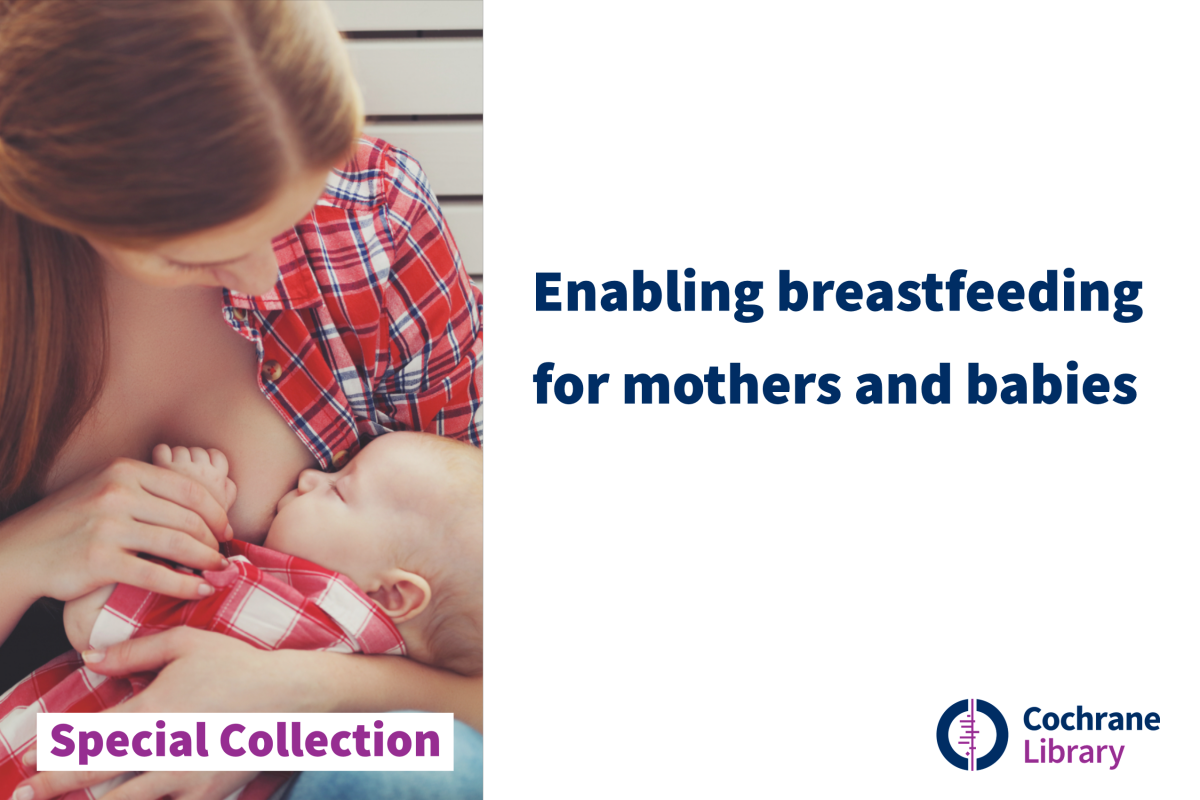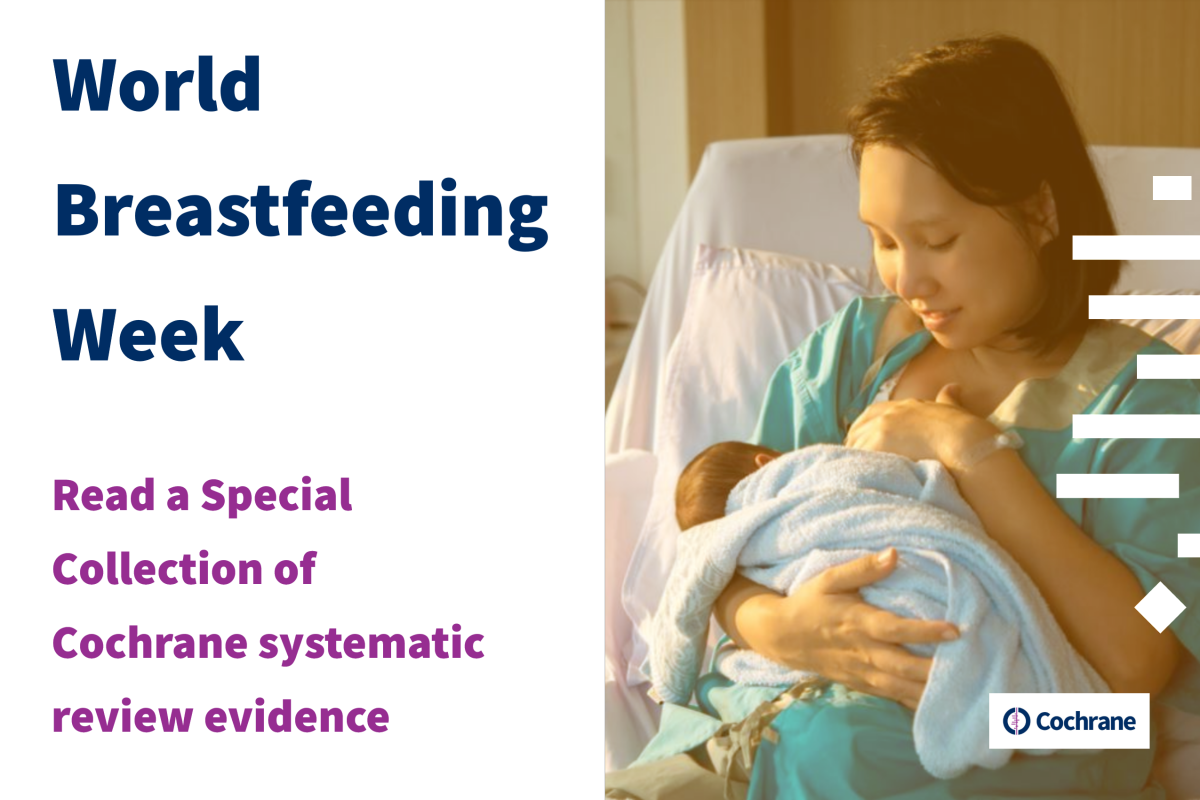
The 1-7 August is World Breastfeeding Week and the full month of August is National Breastfeeding Awareness Month for many countries - the perfect time to highlight the Cochrane Library Special Collection, which brings together Cochrane Reviews assessing evidence on interventions to support breastfeeding. In 2017 the Cochrane Library published a Special Collection of Cochrane Reviews collecting the best evidence currently available supporting effective breastfeeding for mothers and babies. Here Cochrane author Christine East presents the issues and the context surrounding consideration of evidence for breastfeeding.
Richard Branson’s business priorities of employees first, customers second, and shareholders third not only prompts a rethink of the corporate world, it also offers an opportunity to consider a paradigm shift in our approach to breastfeeding. This important public health issue requires that policy makers enable healthcare workers and mothers to be educated, skilled, and supported, and thus meet babies' needs. Which babies? Which mothers? We need to consider singletons, multiples, born prematurely or at term, whose mothers may not be sure how or when to feed, or who experience painful feeding, breast engorgement, or abscesses, or the baby that simply does not want to (or is not ready to) suck. That is pretty much all babies, in all countries.
The Cochrane Library Special Collection brings together systematic reviews conducted by a wide range of researchers, health professionals, and volunteers, to address these questions. The Collection highlights practices, such as support, for which there is a sufficiency of high-quality evidence, as well as others where the evidence is more uncertain or sparse. The spotlight is also pointed on important gaps in the evidence, including the lack of trials that guide education or support for women having twins or higher-order multiples. This is important, given that breastfeeding rates are lower in this group than for singletons.

As Alison McFadden and Mary Renfrew note in the introduction to the Special Collection, breastfeeding is an internationally important health priority, with far-reaching health and wellbeing benefits for both mothers and their infants. Despite this, only 37% of babies are exclusively breast fed, and this percentage is falling, sometimes disproportionately so in low-income families where it has the most potential for benefit.
Low breastfeeding rates worldwide mean that many women live in communities where breastfeeding is not the norm. This Special Collection provides an excellent starting place to act on the call from the Lancet Series on breastfeeding that “…genuine and urgent commitment is needed from governments and health authorities to establish a new normal: where every woman can expect to breastfeed, and to receive every support she needs to do so.”
The evidence supports actions and commitment that promote breastfeeding as normal, with the focus on the mother and her trained support team. Further normalization can be explored through research and practice initiatives that include: ways of enabling babies in the neonatal unit to receive only breast milk and to be breastfed; ways of educating and training healthcare staff to enable women to breastfeed and to overcome those challenging early days; and ways of tempering/tackling the highly influential marketing of breast milk substitutes.
Christine East, Professor of Nursing and Midwifery, Mercy Health & La Trobe University, Victoria, Australia

- View the Cochrane Library Special Collection: Enabling breastfeeding for mothers and babies
- Visit the Cochrane Pregnancy and Childbirth website
- Visit the Cochrane Neonatal website
Related resources
- "Cochrane Indonesia’s Director reflects on her continued contributions to maternal and perinatal health and the work of Cochrane"
- "Cochrane Croatia translates Special Collection on Breastfeeding"
- "World Health Organization uses Cochrane evidence in breastfeeding guideline"
- "Yummy, yummy in my tummy, getting big with milk from mummy. Getting preterm babies feeding orally - a roundup of current evidence." - Evidently Cochrane blog
- "Exclusive breastfeeding or extra food and fluids: evidence and practice" - Evidently Cochrane blog.
- "New Lancet Breastfeeding Series is a call to action" - Evidently Cochrane blog.
- Podcast: Support for breastfeeding mothers
- "Support programs help moms extend breastfeeding time" - Reuters article
- Read about the Special Collection in Spanish.
